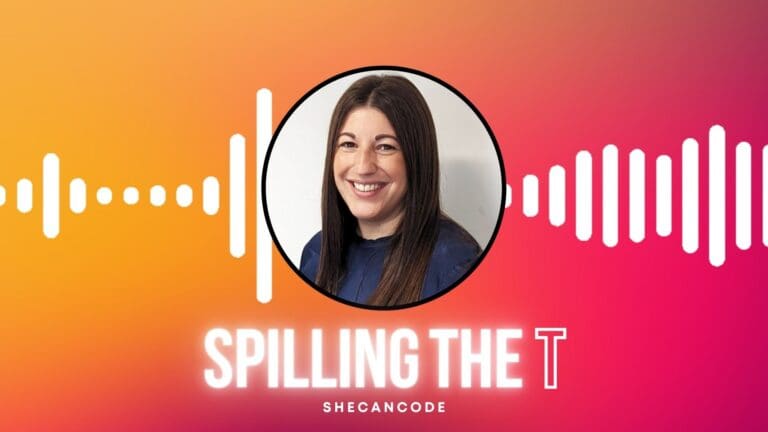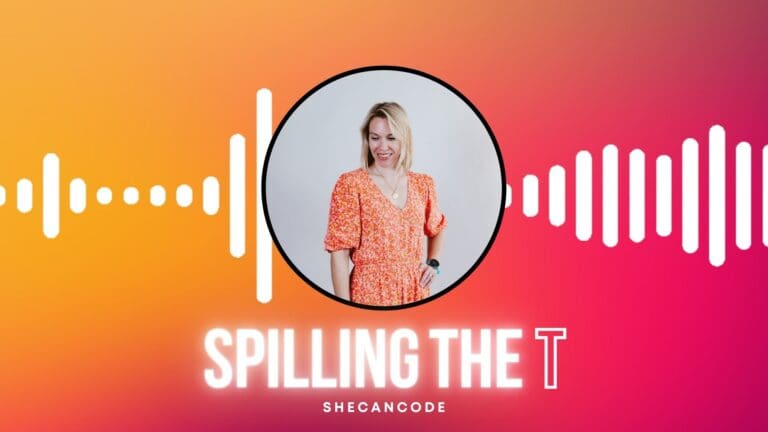For many people, we fall into our careers through a series of minor events in our lives that culminate in something far beyond the reach of any individual interaction.
Sometimes it’s a childhood experience. Sometimes it’s pushed onto us by our parents. Sometimes though, there’s a catalyst. A seed crystal from which an entire career spawns.

When I was 16, having a desk job was the last thing on my mind – I wanted to be a fighter pilot. That was all I wanted to be since I was knee-high and I poured everything into trying to achieve that goal. When I washed out at 17 I had no backup or second-best option, so I went to university to do a degree in multimedia systems (because it sounded cool and I didn’t know what else to do!)
There I found I was half decent at coding so I made a career out of it – because it required very little additional effort beyond simply learning on the job, typing and casting a bit of keyboard magic from time to time. That was the start of my career in tech – a career path that just kinda happened. Note that this was a desk job, the very thing that teen-me hated the idea of.
“Happy accident”
OK, I know a lot of engineers will be quite miffed that I fell into my career as a happy accident while others busted their guts to get here. I failed to mention it took several months to land my first role after university and I think I only got that on charisma alone. So that’s who I was for a decade, bashing out code, and delivering ever more interesting and complex solutions. Starting with the PS3 compiler, I moved into robotics, then biomedical with a really fun lab automation system that tracked millions of biological samples in real-time, captured terabytes of data and even integrated with an automated warehouse-sized robot that lived in -80C, which had the sole task of picking and placing frozen samples. That company has recently been in the news a lot, they’re called UKBiobank, and they are the world’s largest human biorepository.

I’m focusing on UKBiobank here because this is where I met Christine. She joined the company about 12 weeks after I did as the IT Director (my direct line manager), and rocked up on her first day in an amazing outfit that was immaculately tailored and selected to highlight her position of authority. Everybody else lived in jeans and a hoodie – even me! – so she immediately stood out. But rather than coming in, shaking things up, putting her stamp on things and blaming any failings on her predecessor, she picked a desk with all the other engineers, sat down and started a conversation with us.
This for me was wild. Here was a manager who wanted to spend her days with a group of software engineers rather than sitting in the office she had earned. She wanted to understand us, hear about our challenges, learn about what we were trying to deliver and most importantly, to help us.
For all my failures as both an engineer and a human being, Christine stood by me. She supported me professionally, helping me to grow and challenge myself for the first time in my career. She went on to help me personally, listened to me explain what was going on in my life, helped me when I broke up with my ex, gave me a safe space to find my feet and still she wanted to do more. She was never my friend, don’t get me wrong, but she continues to be one of the most pivotal women in my life outside my family.
A little more about Christine
A little more about Christine: She grew up in the same region of England as I did. She had travelled a lot for work before settling in Manchester. She had been married for several years before our paths crossed and she had a young son who must be pushing 16 now. Before going into management I’m pretty sure she was a software engineer, then a project manager.
I worked for Christine for 4 years, before finally getting the itch to do something new. On my last day, I gave her a big hug. Her parting words to me were “Fly, my butterfly”, and yes I bawled my eyes out at that.
The following week I started my new job with a subsidiary of Shimadzu where I joined a quiet team who barely spoke to each other. My new manager turned out to be the exact opposite of Christine, and it really made me itch. Where Christine would listen and give us space to find our answers, my new boss would micromanage us or ignore us when we needed real support or guidance. A few times he even dove into the codebase we worked on and changed things without telling anybody or going through peer review. I’m certain he had positive intentions, but it didn’t work out very often. After a few months of working with him, I started to think that I could do his job better than he could with nothing other than how Christine had shown what a good manager could be.
I went back to see Christine within that first year and spoke to her about this uncertainty in my career, partly wanting to go back and work with her again, partly not wanting to stay with my new manager but still wanting new challenges. Her advice was simple and obvious: “Work out who you want to be.”
It took months to realize who I wanted to be: I wanted to be like Christine for another engineer; I wanted to give someone else the support and guidance and a safe environment to grow. Christine was my seed crystal and I had no idea until that moment of realization. I then spent the better part of two years pouring myself into leadership, mentoring and managing projects. I would stay up late reading blogs on how to be a better leader or what it meant to manage a team. Eventually, I landed my first management role with an international law firm and I never looked back.
To conclude…

Being a leader, manager, mentor and coach is a lot of hats to wear, and the challenges are very much “analogue” compared to the pure digital logic of software engineering. People are messy, while our code can be clean, straightforward and simple in its elegance. Yet seeing someone succeed, seeing someone push beyond their comfort zone and find they love this new challenge, or seeing someone use all their new skills to land their next dream role – all of these things are infinitely more valuable to me than writing code.
I’ve watched engineers come and go. I’ve hired amazing engineers that I still speak with, and I’ve taken a gamble on engineers who wouldn’t have had a chance and they’ve gone on to prove me right. Perhaps this is all because of the individuals and their desire to grow and be better, but I like to think that the space and guidance I’ve given these individuals played a part in how awesome they’ve gone on to be.
I know Christine is incredibly proud and embarrassed that I call her my role model. I don’t know if I’d be embarrassed if I was in her position – maybe time will tell though.







